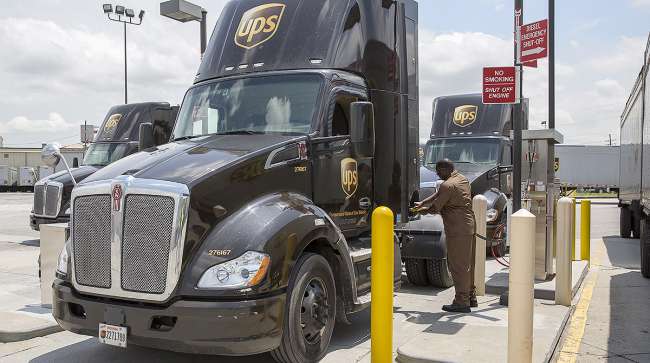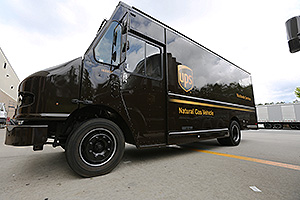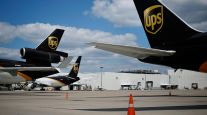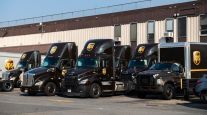Senior Reporter
UPS Invests $450 Million in CNG Trucks, Stations

[Stay on top of transportation news: Get TTNews in your inbox.]
UPS Inc. announced it will spend $450 million to add 6,000 vehicles powered by compressed natural gas as well as supporting infrastructure beginning next year. It is the largest multiyear commitment UPS has made to date for alternative fuel vehicles.
The additions include heavy-duty trucks, medium-duty package vans, and terminal tractors.
.@UPS To Add More Than 6,000 Vehicles To Its Natural Gas Fleet https://t.co/8eCOTJ4klO - #upsnews pic.twitter.com/3lPFlS9DN4
— UPS News (@UPS_News) October 9, 2019
UPS expects to have finished adding the equipment by 2022.
“We have been deploying natural gas vehicles for many years. We greatly accelerated our deployment of natural gas stations and vehicles starting in 2013. We no longer consider our natural gas fleet to be in a test or experimental phase, but rather it is mainstream for UPS now,” a UPS spokesperson told Transport Topics. “We closely follow oil and natural gas prices, but we believed back in 2013 that natural gas in the U.S. would be relatively stable in cost versus oil-based fuels. That has proven to be the case and we see that continuing for the foreseeable future.”
Agility Fuel Solutions, a business of Hexagon Composites, will supply the fuel systems. Since 2016, Agility has provided natural gas fuel storage and delivery systems to more than 1,700 UPS trucks.
Additionally, TruStar Energy will design, manufacture and install five CNG fueling stations in Lathrop, Visalia and Moreno Valley, Calif., Houston and Cleveland.
UPS will deploy the new CNG vehicles on routes to use the new stations as well as add to existing natural gas fleets in other UPS locations.
The latest CNG fleet expansion also provides additional truck capacity for expanding the use of renewable natural gas.
“Building CNG truck capacity is vital to increasing our use of RNG and ultimately meeting our 2025 sustainability goals,” Juan Perez, chief information and engineering officer at UPS, said in a release. “We intend for 25% of our vehicles purchased in 2020 to run on alternative fuels.”
RNG is produced from landfills, dairy farms and other bio sources, and yields up to a 90% reduction in life-cycle greenhouse gas emissions compared with conventional diesel.
As of this month, UPS has agreed to purchase 230 million gallon-equivalents of RNG over the next seven years, making the company the largest consumer of RNG in the transportation industry.
By the end of 2019, UPS reported it will be operating 61 natural gas fueling stations strategically located across the United States and abroad in Vancouver, Canada, and Tamworth, United Kingdom.

UPS natural gas package vehicle by UPS.
Over the past decade, UPS has invested more than $1 billion in a variety of alternative fuel and advanced technology vehicles and fueling stations to help meet its target of reducing absolute greenhouse gas emissions by 12% across its global ground operations by 2025.
In related news, the U.S. Department of Energy in March announced grants totaling $18 million to advance medium- and heavy-duty natural gas vehicle technologies.
DOE’s National Renewable Energy Laboratory selected nine projects to receive the funds.
The selected projects will focus on reducing the total cost of ownership of natural gas vehicles, increasing vehicle efficiency, decreasing local air pollution, and advancing technology development to increase the use of more affordable medium- and heavy-duty natural gas engines and vehicles, according to the laboratory.
“Leveraging the technical expertise of industry partners can have a powerful impact on transportation technologies,” said Johney Green, associate lab director for mechanical and thermal engineering sciences at National Renewable Energy Laboratory. “Innovation that can change the paradigm for energy use in transportation is going to come by bringing together researchers from several areas.”
DOE’s Energy Information Administration found a CNG-powered vehicle gets about the same fuel economy as a conventional gasoline vehicle on a gasoline-gallon-equivalent basis.
UPS ranks No. 1 on the Transport Topics Top 100 list of for-hire carriers in North America.
Want more news? Listen to today's daily briefing:




